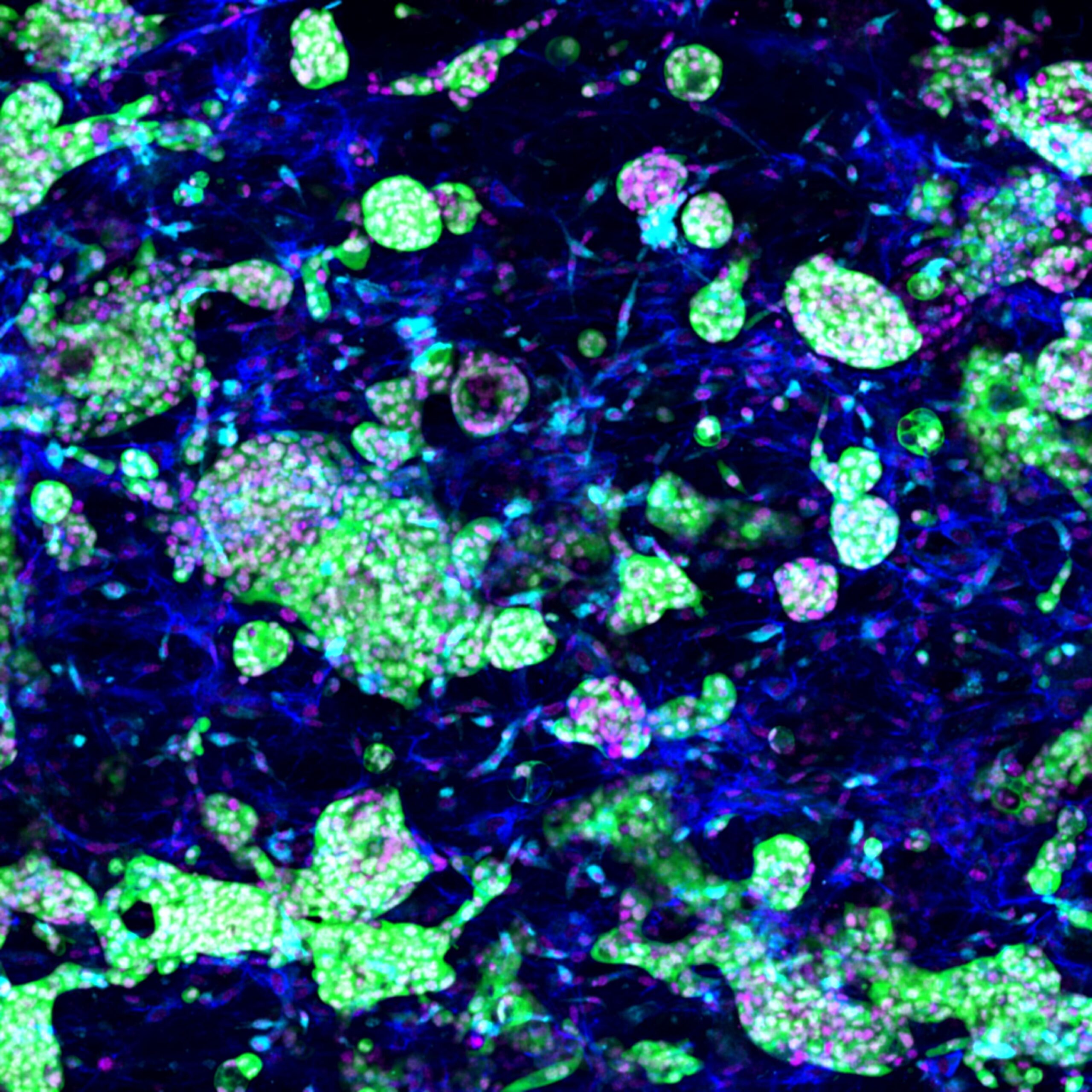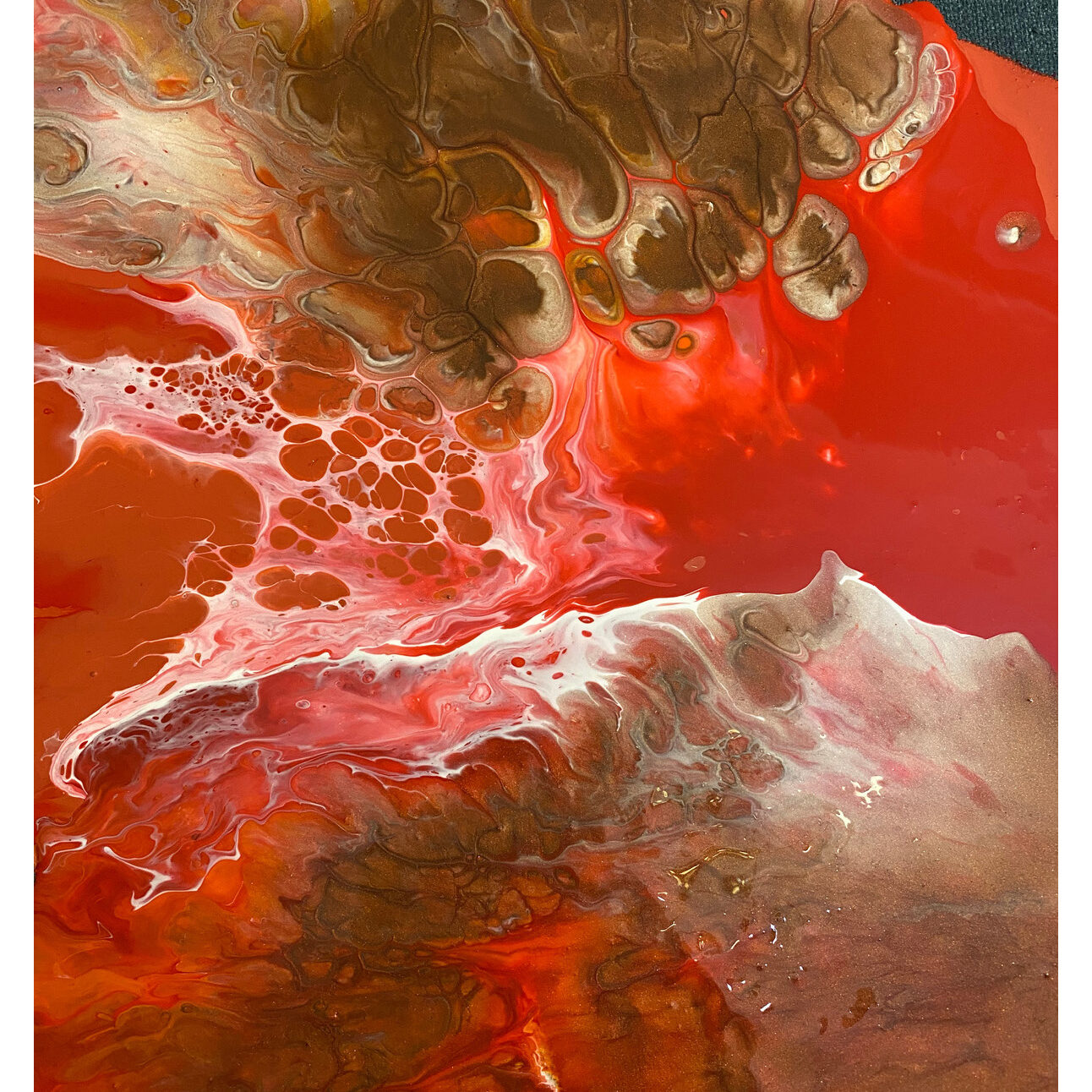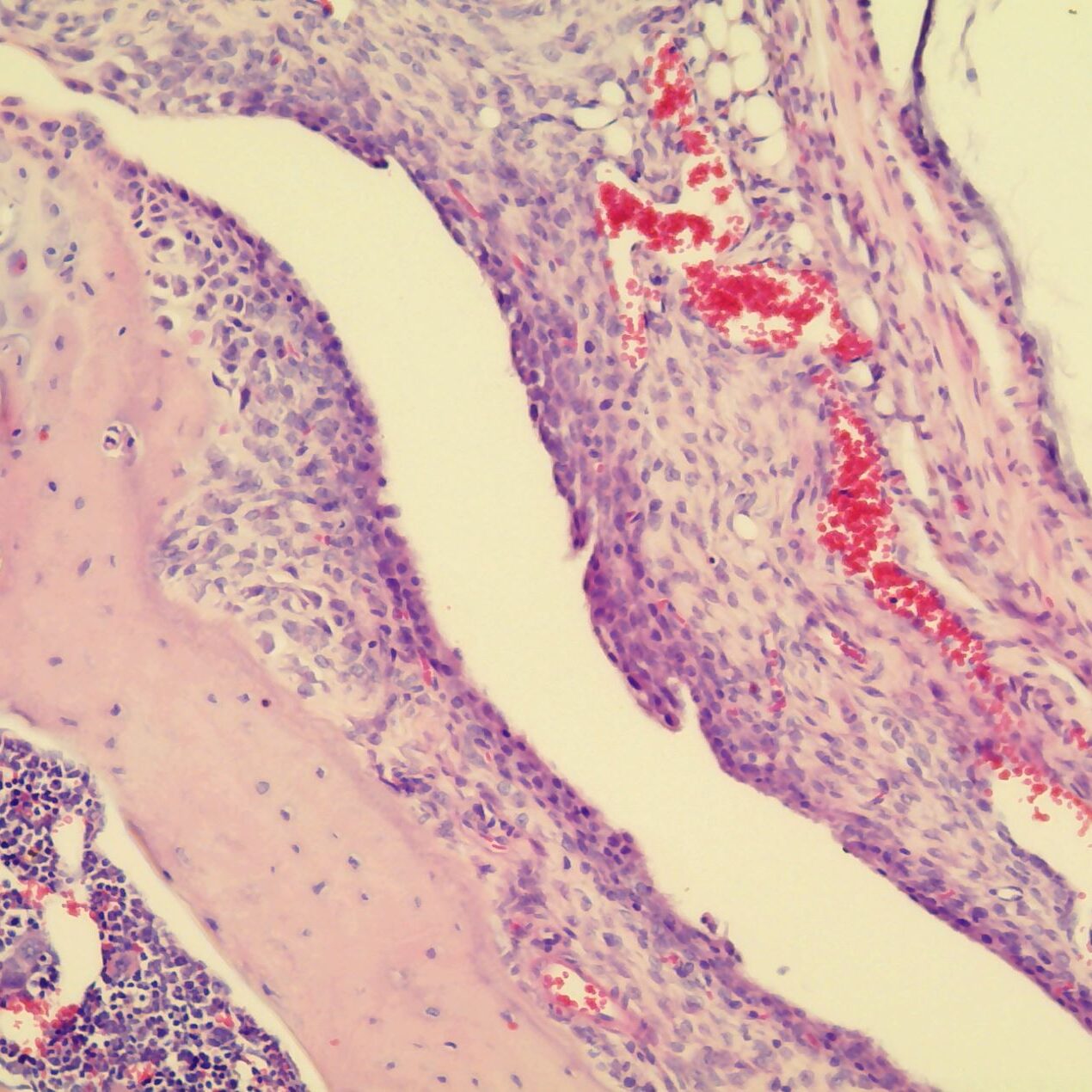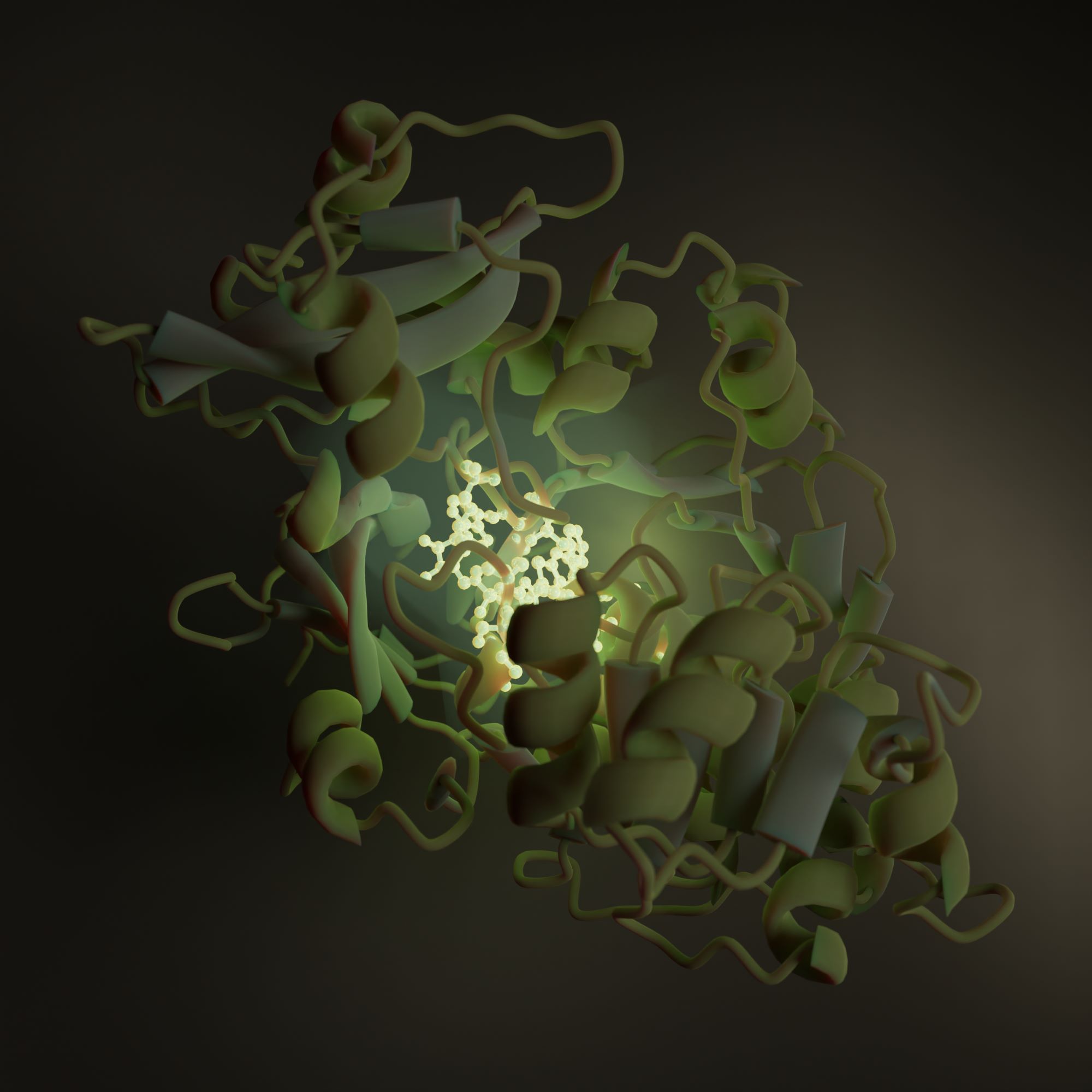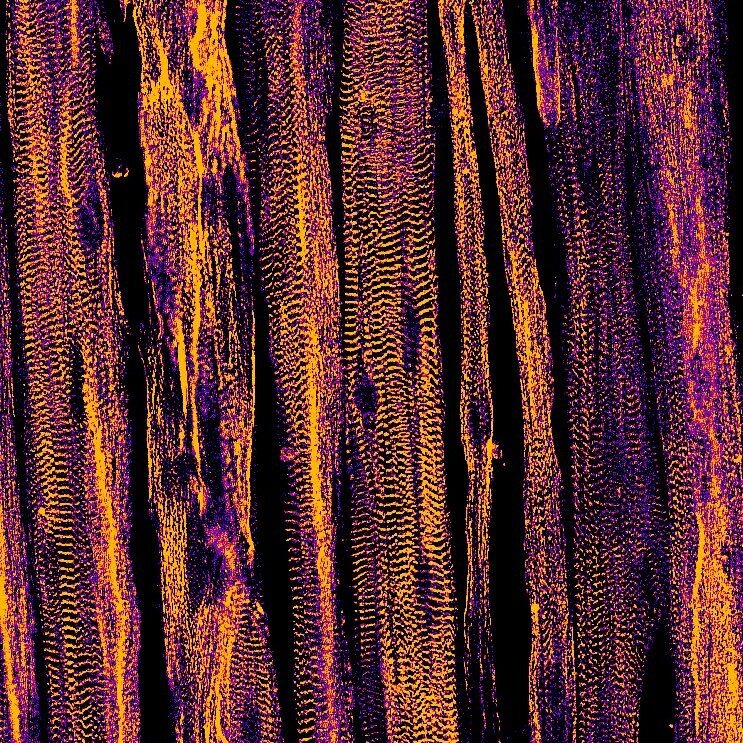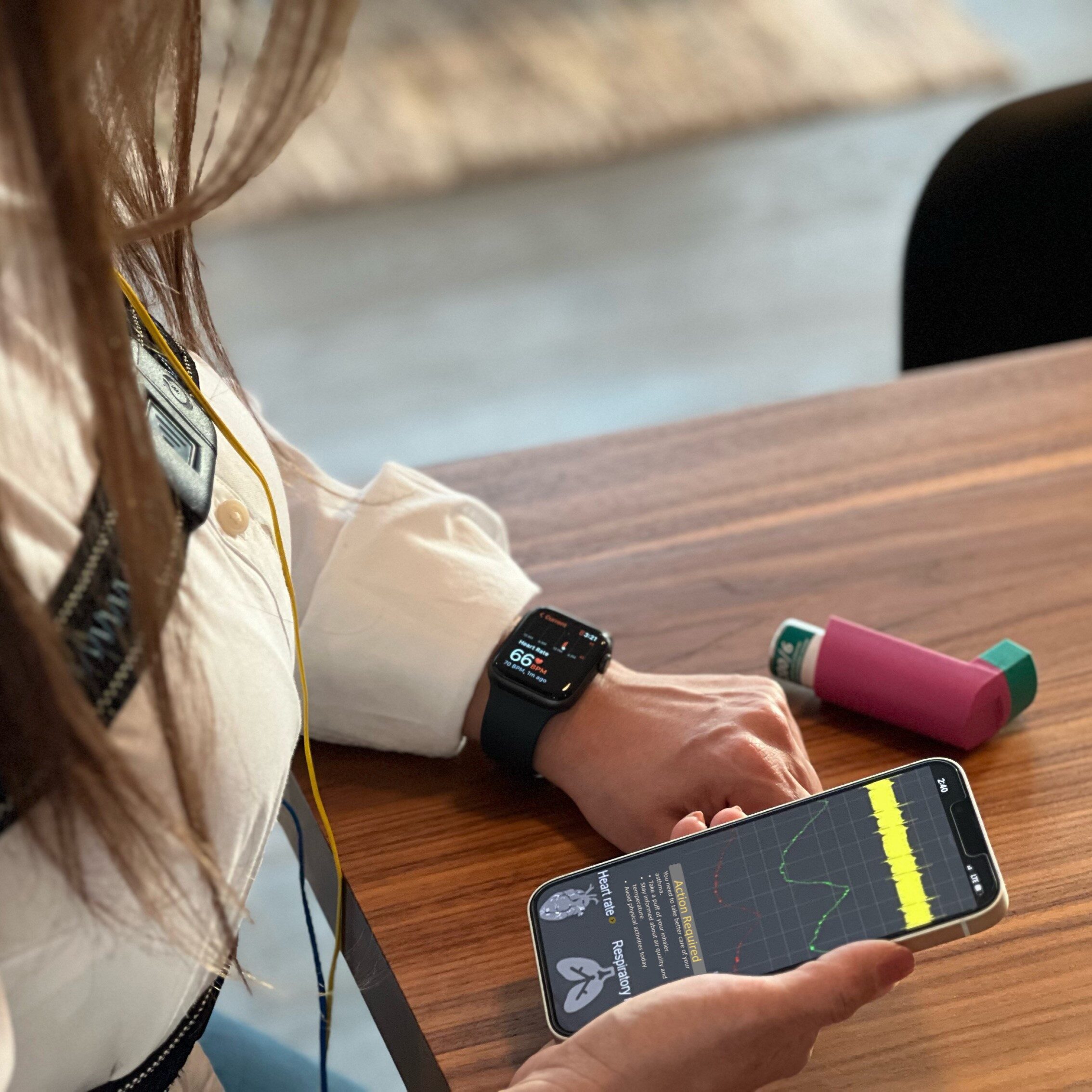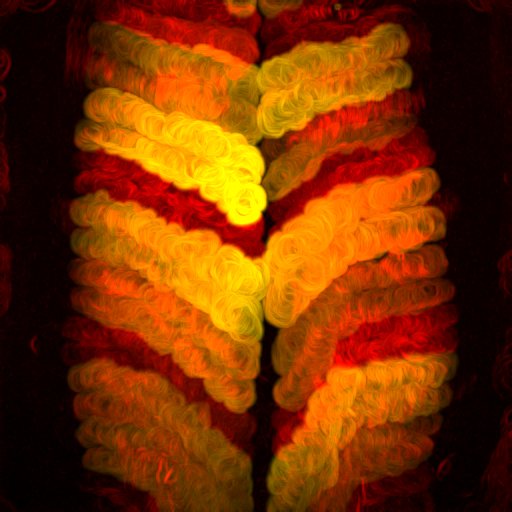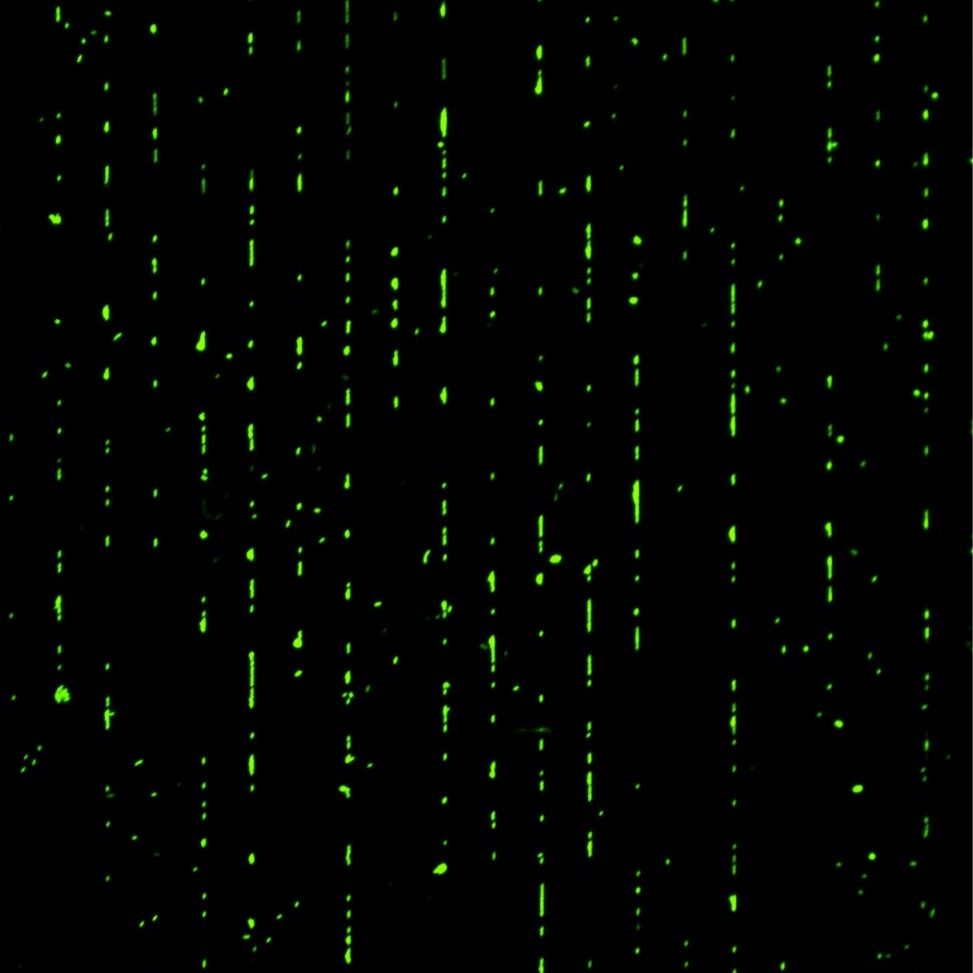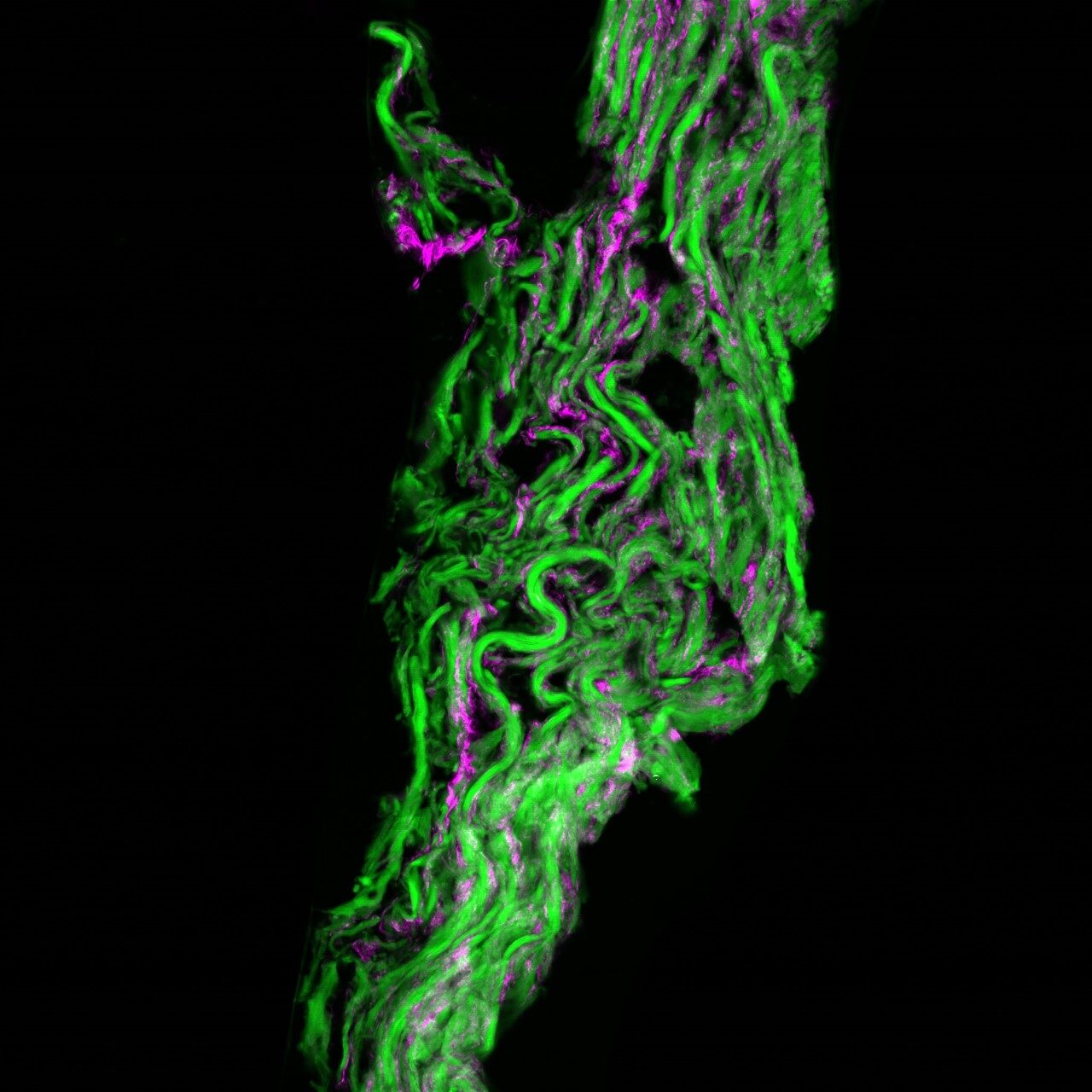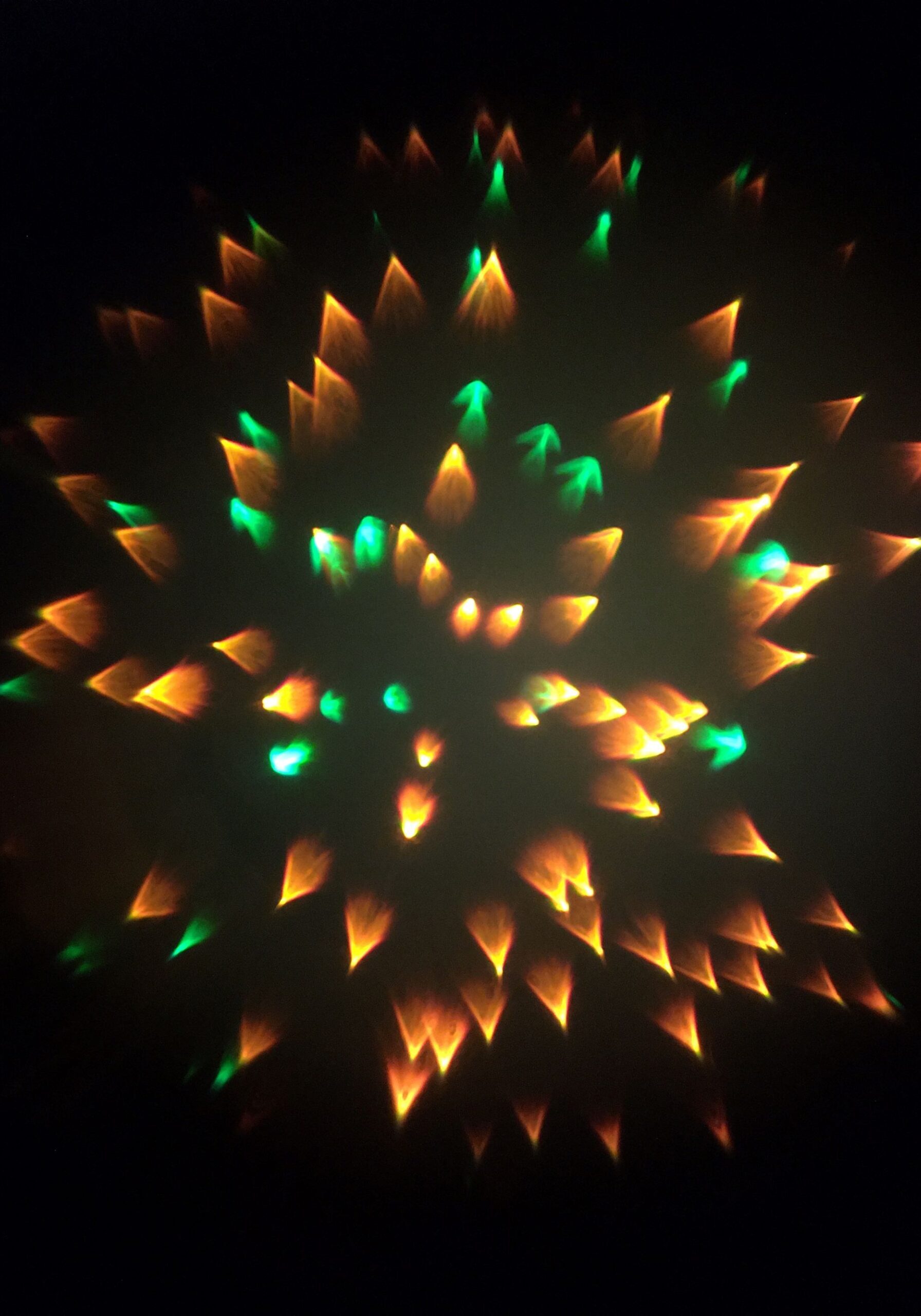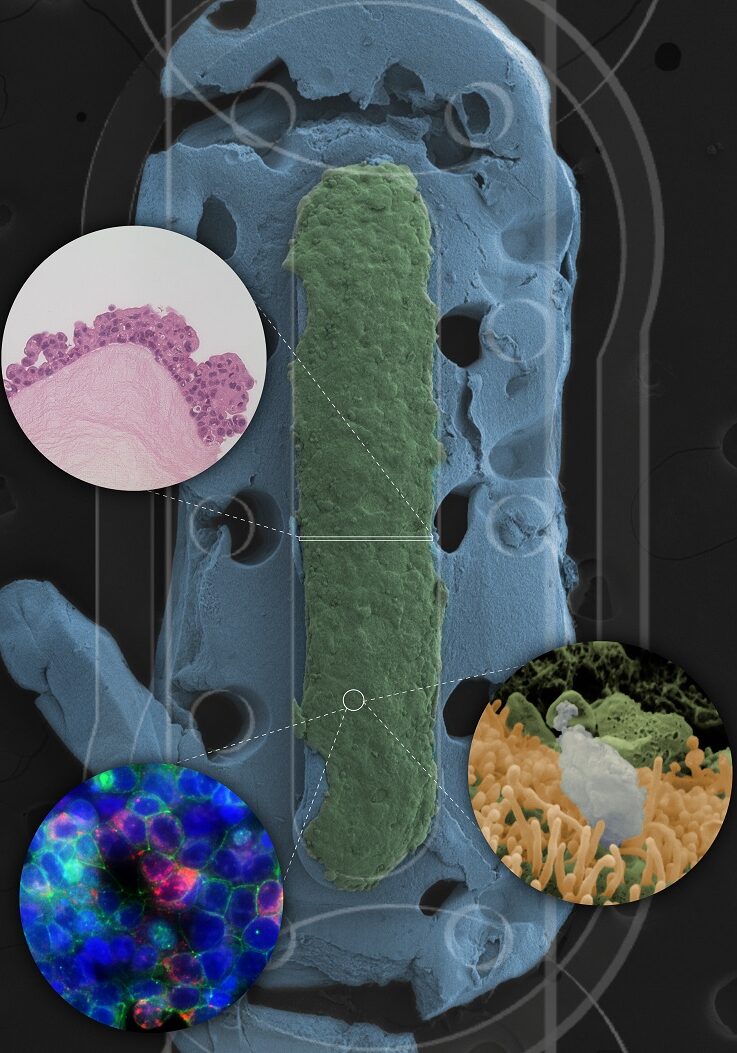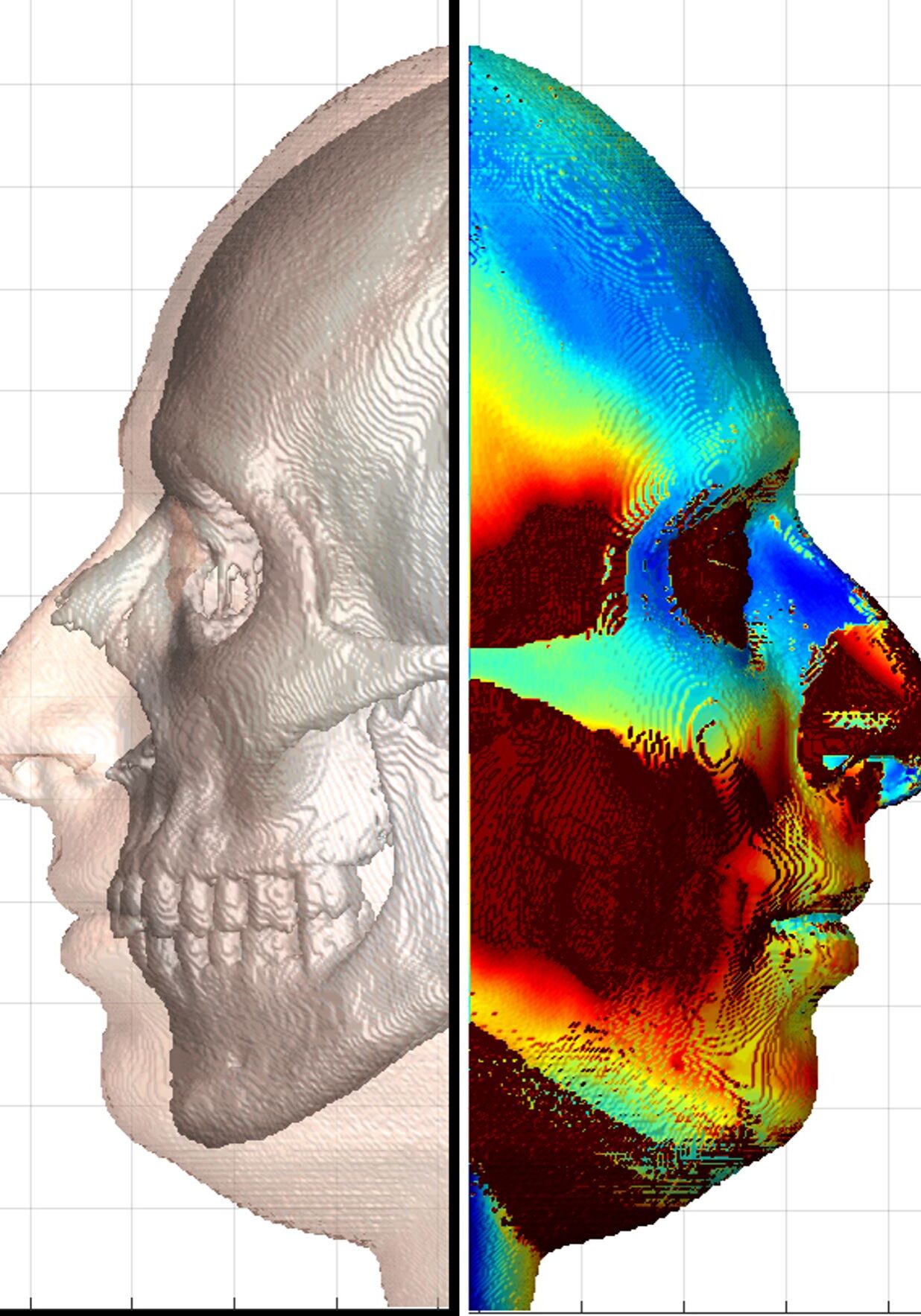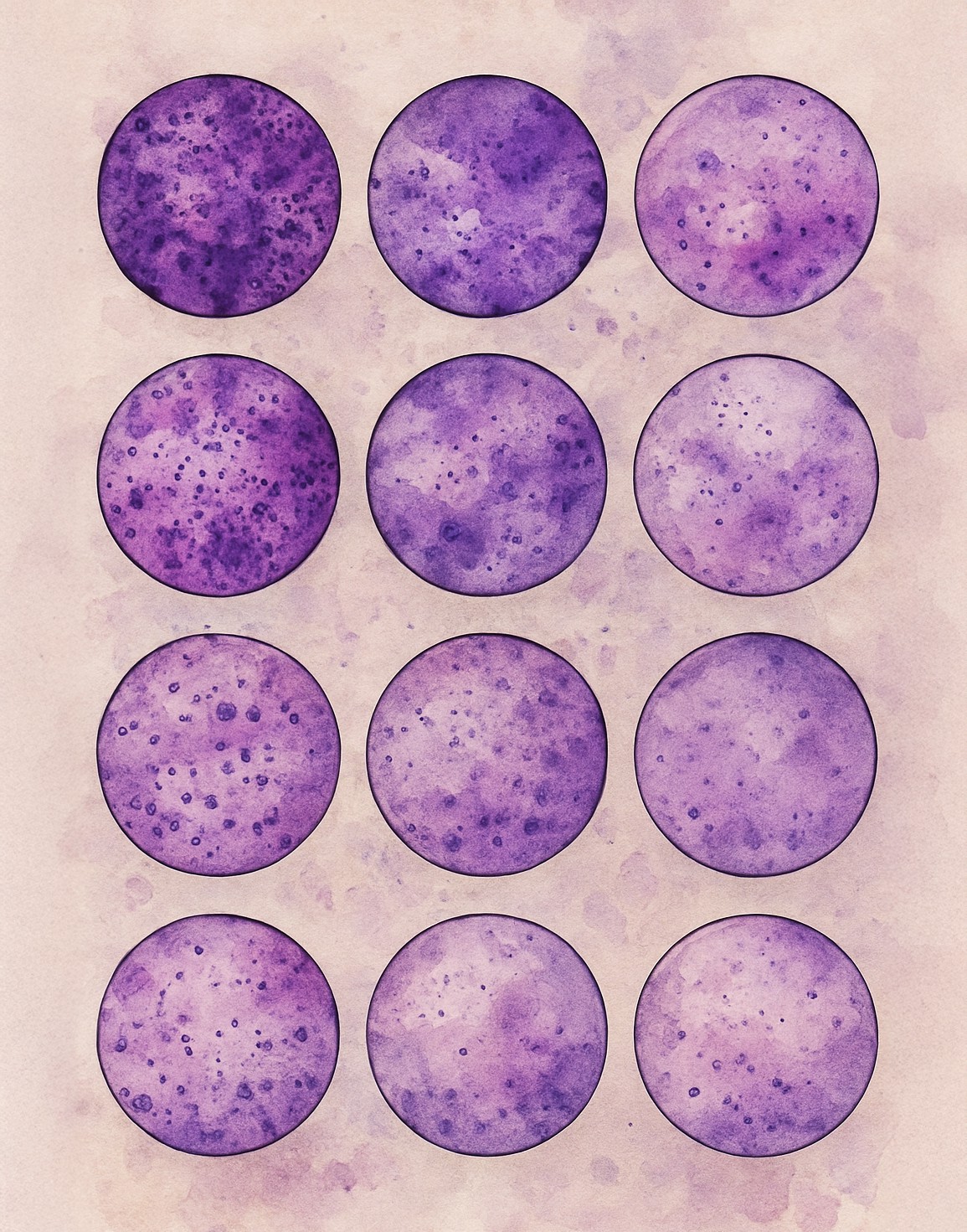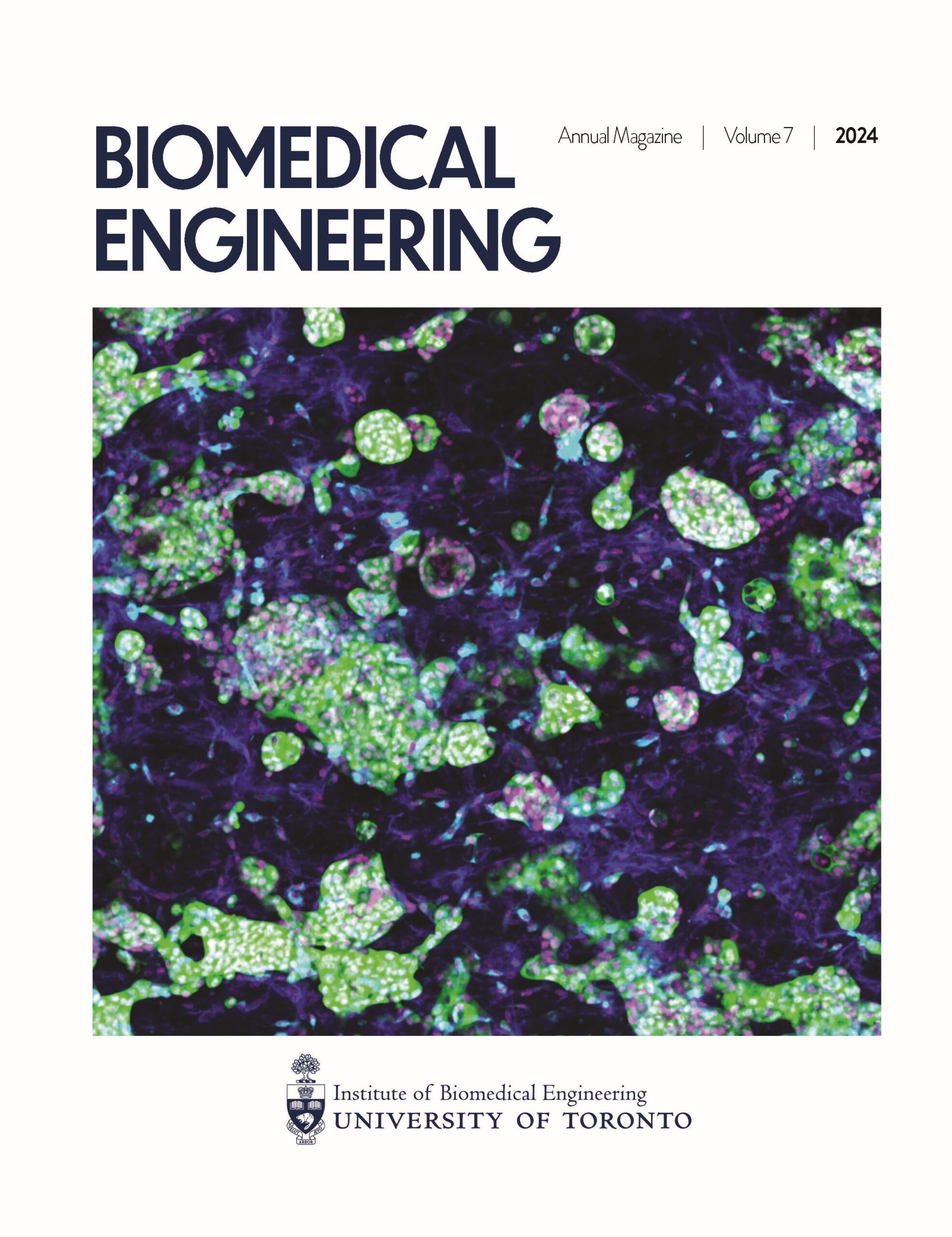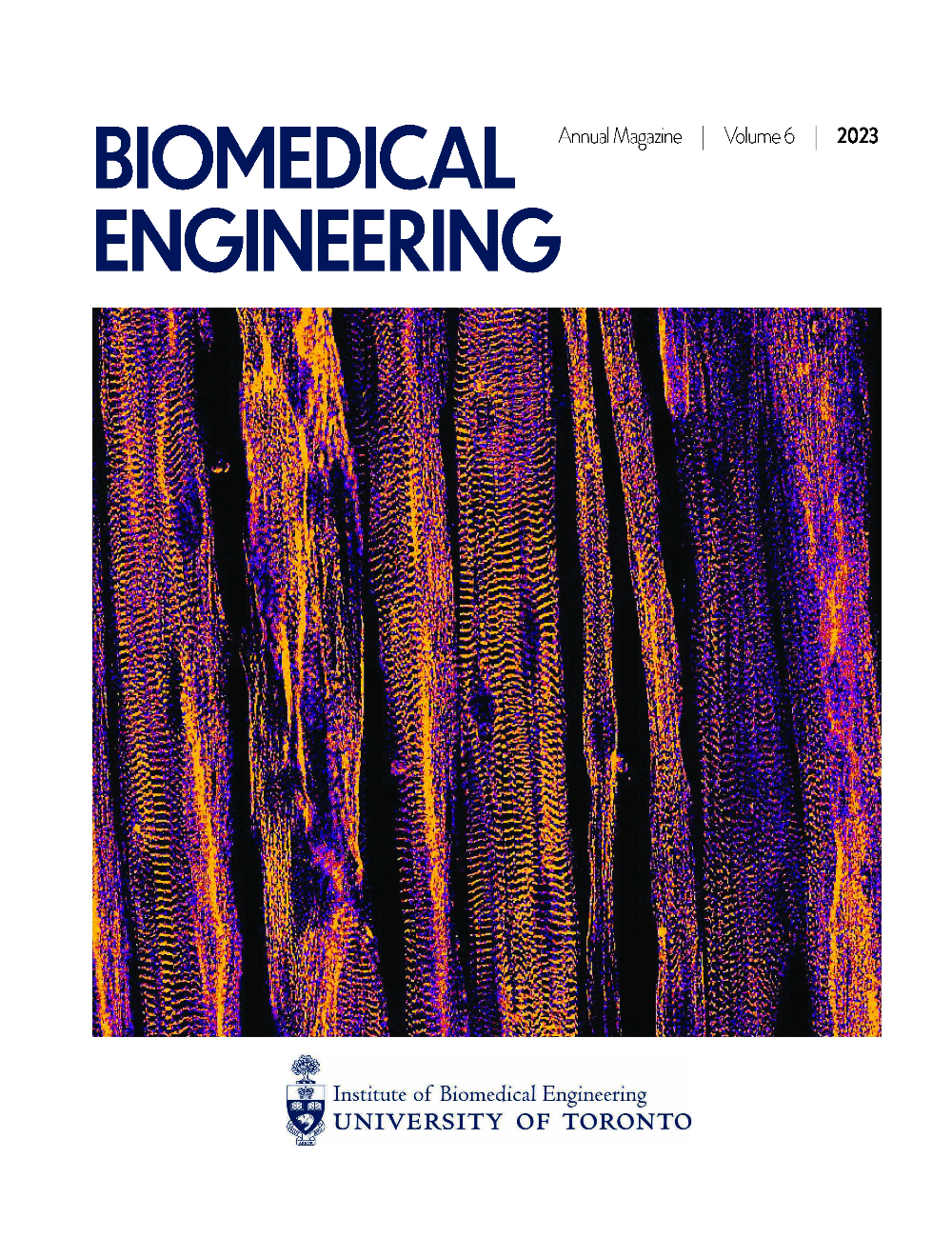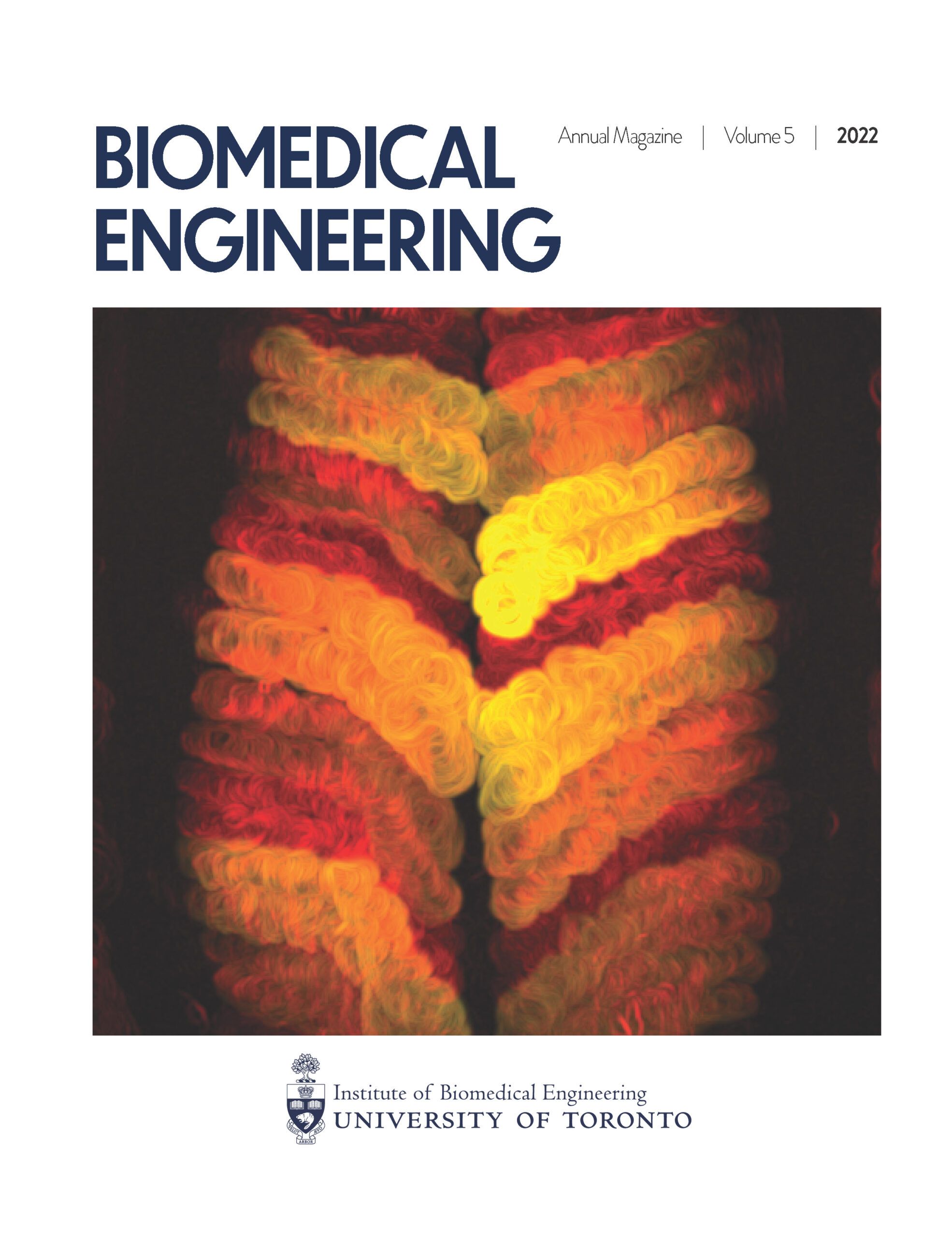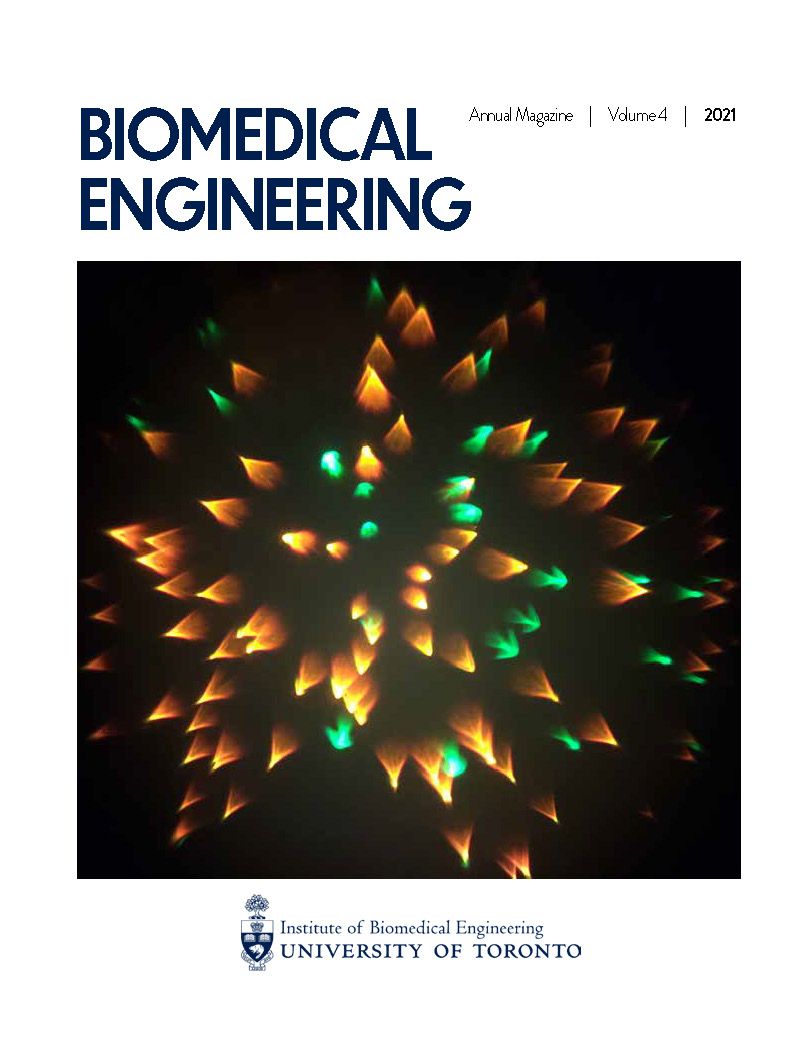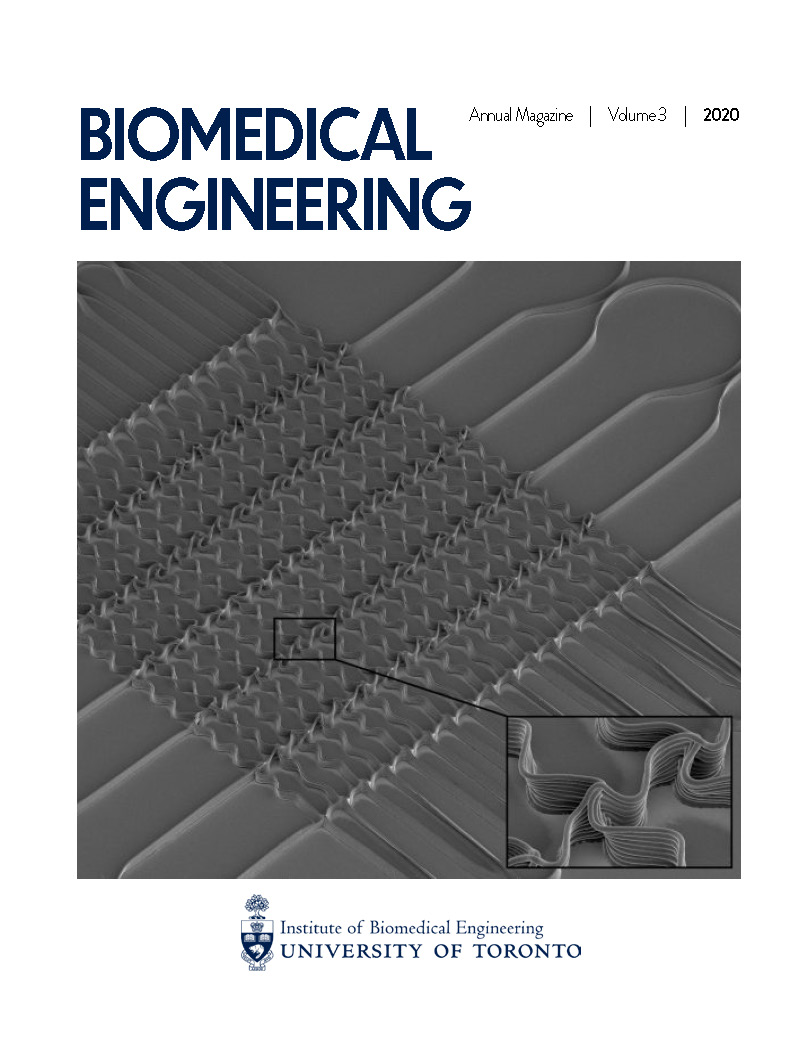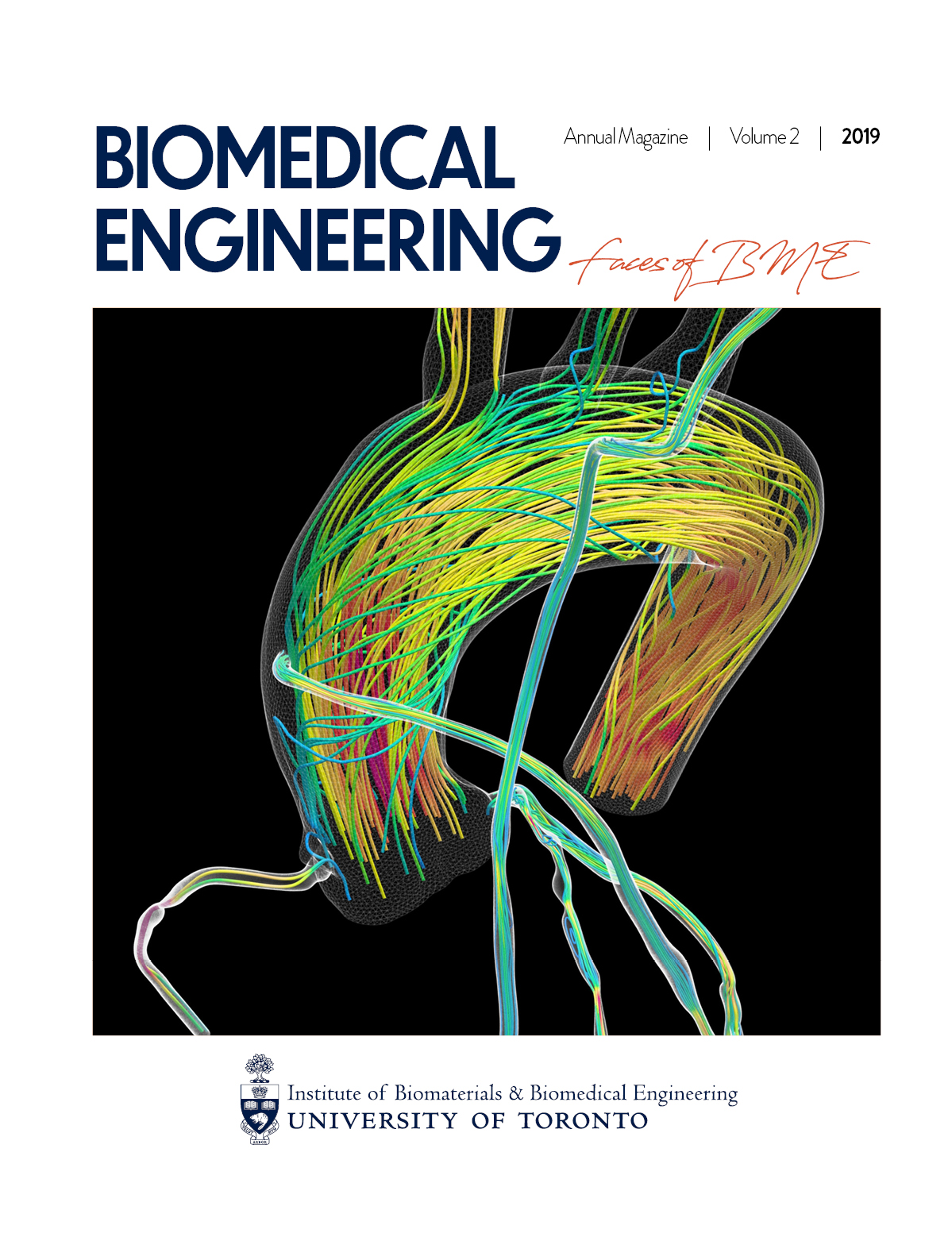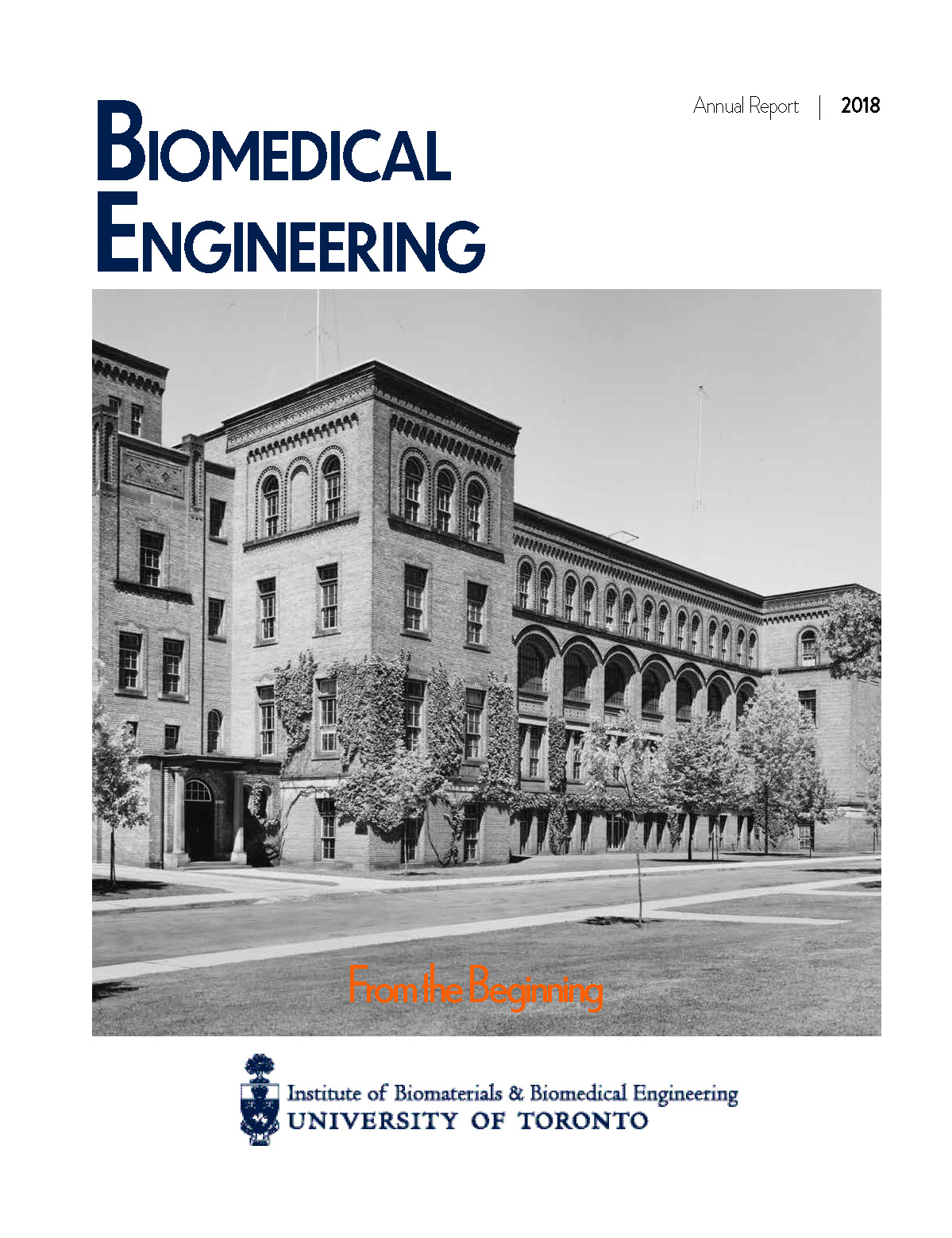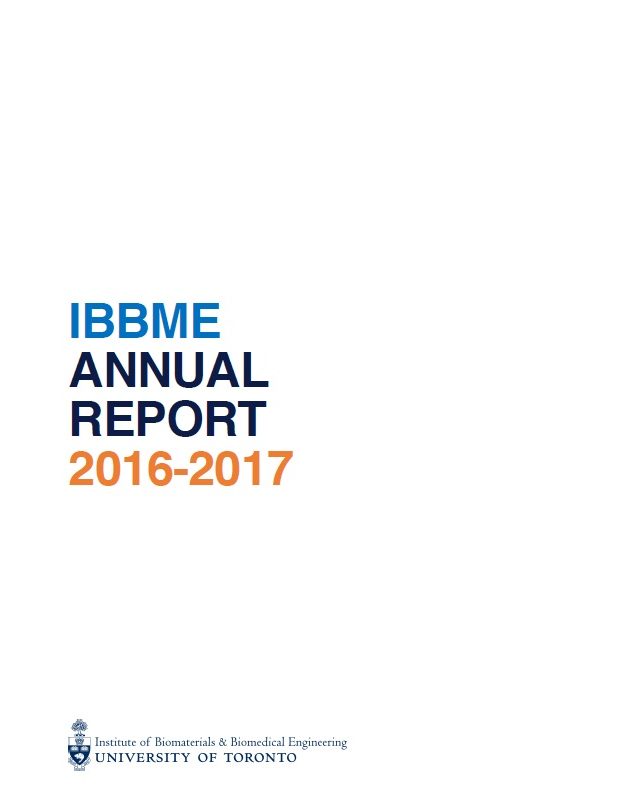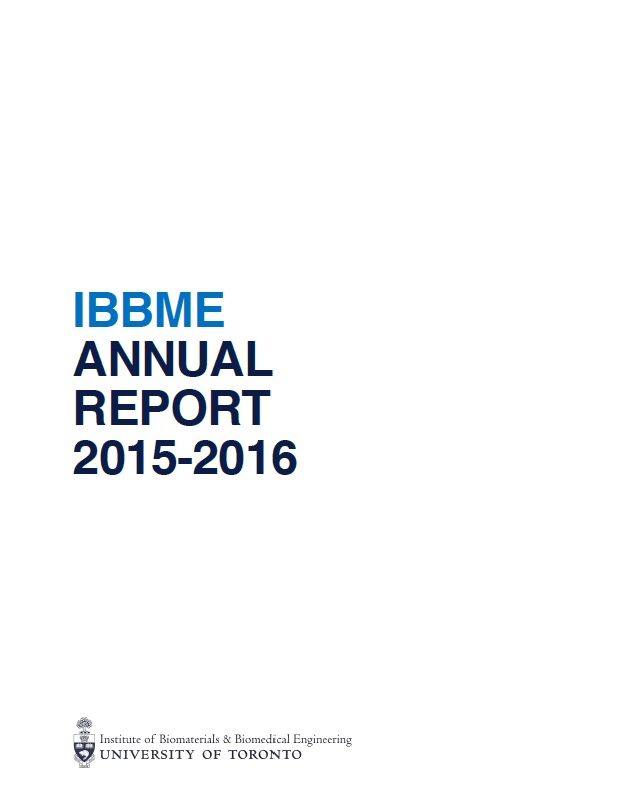Annual Magazine
The BME annual magazine is an annual in-house production that highlights some research findings, student life, and alumni stories in the past year. In 2018, we transitioned this medium from an annual report to a magazine in order to focus on the people who make up the Institute.
The cover of each magazine volume were submissions by members of the BME community at the University of Toronto. The 2024 cover was selected based on its relevance to the topic of BME and its general aesthetics. Read more about the top three submissions below.
Quick Navigation
Cover submission winners

Digital, Adobe Fresco
This image illustrates a colourimetric method used to assess cell viability. Displayed are Lewis Lung Carcinoma cells following a 24-hour treatment with cisplatin, a chemotherapy agent, at increasing concentrations. The deepening violet tones reflect the gradient of cytotoxic response, a visual harmony between chemistry and cell fate, where colour becomes a measure of survival.
Artist Bio
Dinuri Punchihewa is a Master of Engineering student at the Institute of Biomedical Engineering working under the supervision of Prof. Naomi Matsuura.
